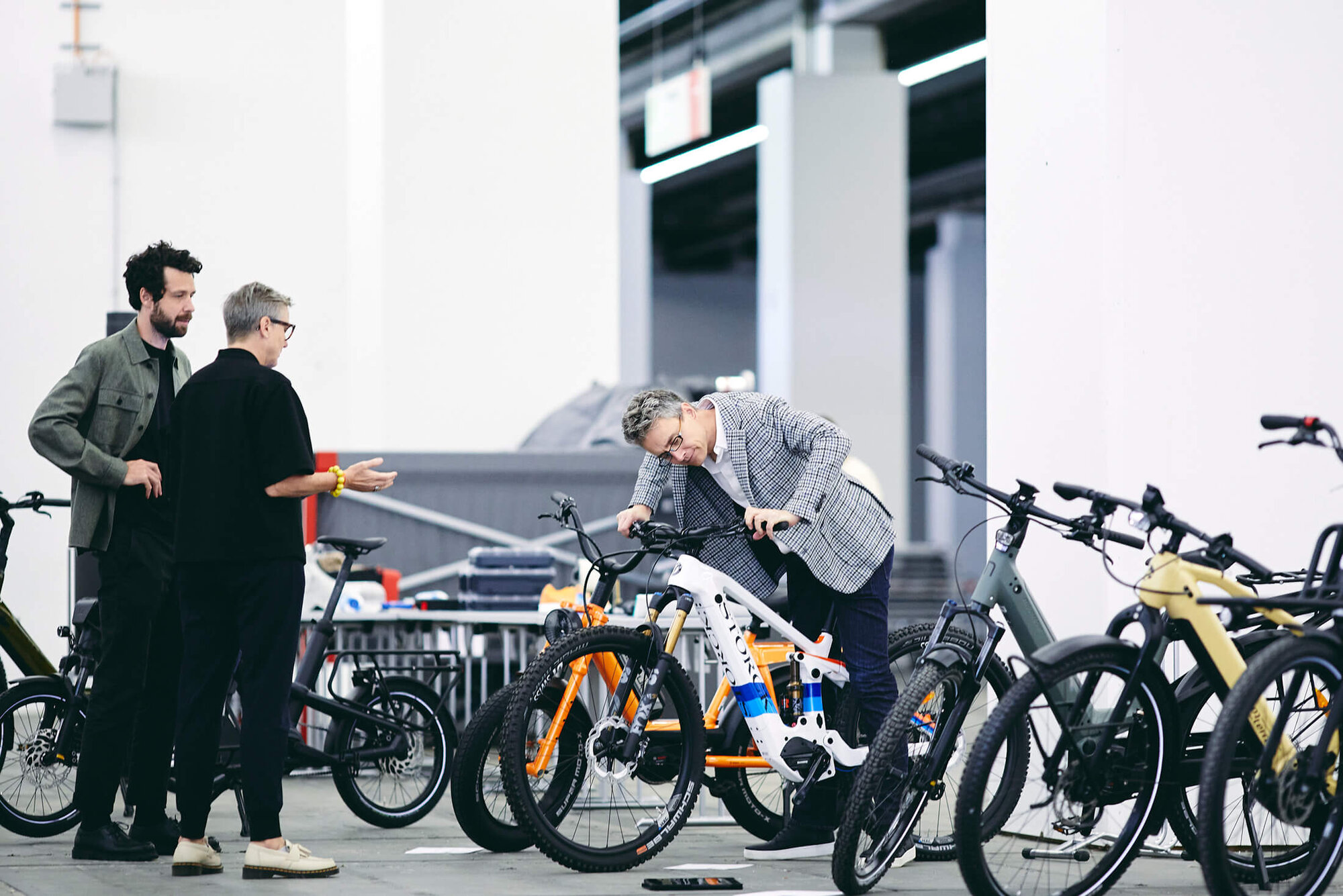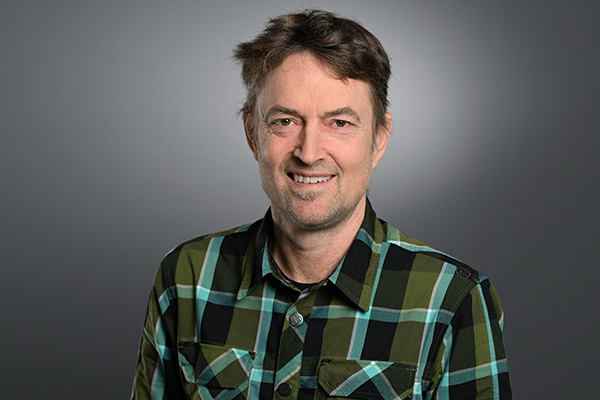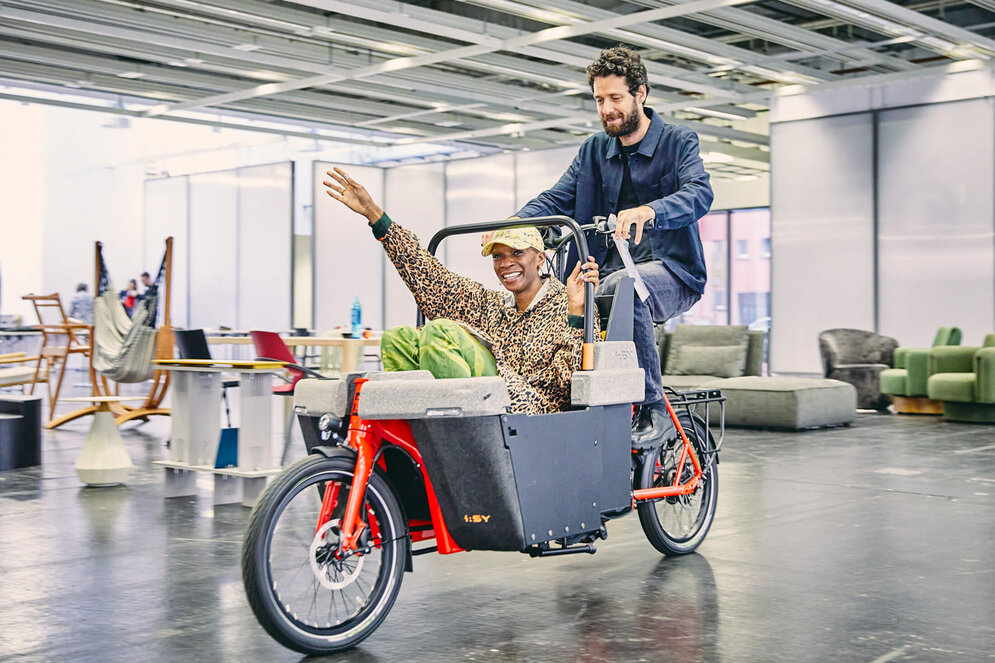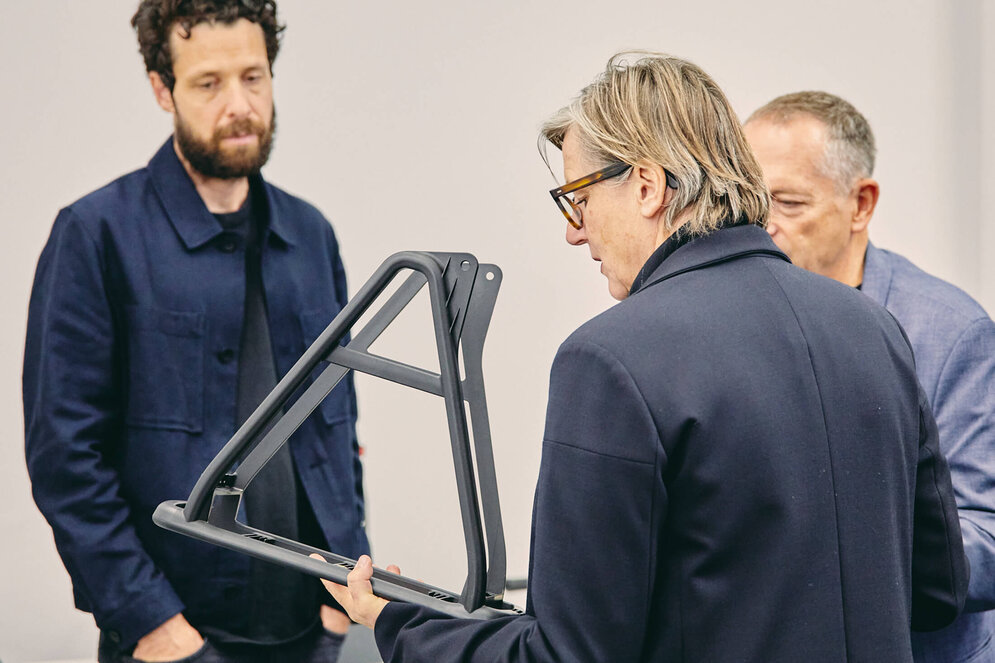Eye on the future – urban mobility and sustainability


Driver of innovation for the future – News from the bicycle and e-bike industry
Der vom German Design Council realisierte Eurobike Award mit Preisverleihung am 3. Juli 2024 währende der Messe Eurobike war ein großer Erfolg und hat eindrücklich gezeigt, wie viel Innovationskraft in der Bike-Branche steckt. Im Fokus standen die Weiterentwicklung von E-Bike-Lösungen, die die Mobilitätswende im urbanen Raum vorantreiben, und Nachhaltigkeitsaspekte in allen Bereichen. Wir haben Stefan Reisinger, dem Geschäftsführer der fairnamic GmbH, ein Joint Venture der Messe Frankfurt und der Messe Friedrichshafen für innovative Mobilitätslösungen, um ein Resümee zu den aktuellen Entwicklungen gebeten.
Interview with Stefan Reisinger
"In general, the trend towards e-bikes and pedelecs in Germany and Central Europe continues unabated. The share of motorised bikes in the overall market is increasing from year to year. All experts agree that this trend will continue."
Stefan Reisinger is Managing Director of fairnamic GmbH, a joint venture between Messe Frankfurt and Messe Friedrichshafen, which promotes innovative mobility concepts. The company combines two important trade fair formats - Eurobike, one of the world's leading trade fairs for bicycles and e-bikes, and Aero, which specialises in general aviation.
Reisinger has been responsible for the Eurobike trade fair since 2004. Under his leadership, fairnamic is expanding the internationality of Eurobike with events such as Eurobike Istanbul and Asiabike Jakarta.


The bicycle industry has been one of the most innovative sectors for years. Despite this, over 40% of journeys of less than 5 kilometres in Germany are still made by car. What are the approaches taken by the bicycle industry to promote a change in behaviour?
Firstly, manufacturers and retailers build and sell excellent bicycles for almost every mobility need, from childhood to old age, that are fun, keep you healthy and fit, and are good for the environment and your wallet. For short journeys, a bicycle or e-bike is usually faster and more efficient than a car. Many manufacturers, dealers and service providers are also politically committed to cycling through their respective associations.
What does it take for the bicycle to be seen as the means of choice?
In order to get more people cycling, incentives are needed. A safe cycling infrastructure, including cycle paths, cycle lanes, marked cycle lanes, appropriate speed limits, secure parking facilities, etc., but also financial benefits such as company bikes. Politicians must create the framework conditions for this. But there also needs to be a shift in thinking in society. If we want to curb climate change and achieve the energy and transport transition, there is no way around more cycling.
What can cities do to encourage more people to cycle?
Create a comprehensive, safe cycling infrastructure, push back the car, which blocks public space for an average of 23 hours a day, and prioritise cycling and give it more space. Making cities liveable again, inspired by cities such as Copenhagen, Amsterdam or Paris. In German cities such as Münster or Karlsruhe, we can see that supply and demand reinforce each other - more cyclists - better infrastructure - more cyclists and ultimately a better quality of life.
Transformation in the mobility industry today not only means moving people to low-carbon forms of transport, but also producing as low-carbon and resource-orientated as possible. What is happening in this regard in the bicycle industry? Are there any lighthouses that are pursuing exemplary circular design approaches?
Cycling is clearly more resource-efficient than driving a car. Irrespective of this, the cycling industry also has a duty to minimise CO2 emissions. More and more manufacturers are taking up this challenge. Ralf Bohle/Schwalbe Reifen can certainly be mentioned here as a reference, who have dealt intensively with the topic of sustainability in recent years and have driven the entire company towards circular processes and climate neutrality.
In view of the current economic challenges and market development, how do you assess the future demand for e-bikes, especially for the new trends such as ‘SUV bikes’ and ‘light e-bikes’?’ What trends and developments do you see in the e-bike segment with regard to sustainability and environmentally friendly mobility solutions?
In general, the trend towards e-bikes and pedelecs in Germany and Central Europe continues unabated. The share of motorised bicycles in the overall market is increasing from year to year. All experts agree that this trend will continue. It should be noted that after two outstanding years during the pandemic, the industry has recently been struggling with declining demand and high stock levels. Regardless of the current situation, the market will pick up again in the future and develop at an above-average rate, and the trend towards electric bikes will continue.
SUV bikes are something of an all-rounder, very robust and also very popular off-road, for leisure tours, commuting or running errands or for towing child carriages. Light e-bikes are ideal if you don't need maximum range or power in urban areas and are significantly slimmer, lighter and easier to handle. Cargo bikes are also still very popular and are predominantly sold motorised.
